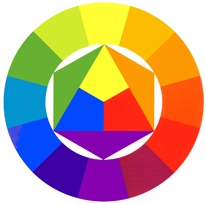That's right, there's a reason to use certain colors in your logo design to convey a specific message Red evokes aggressiveness, passion, strength and vitality Pink evokes femininity, innocence, softness and health. Orange evokes fun, cheeriness and warm exuberance. Yellow evokes positivity, sunshine and cowardice. Green evokes tranquility, health and freshness. Blue evokes authority, dignity, security and faithfulness. Purple evokes sophistication, spirituality, costliness, royalty and mystery. Brown evokes utility, earthiness, woodsy-ness and subtle richness. White evokes purity, truthfulness, being contemporary and refined. Gray evokes somberness, authority, practicality and a corporate mentality. Black evokes seriousness, distinctiveness, boldness and being classic. |
| |||||
Choose colors that match your mission and the message you wish to convey Of all the forms of non-verbal communication, color is the most instantaneous method of conveying messages and meanings. Before humans learned to appreciate the aesthetics of color, there were far more practical aspects of communications with color. Our very survival depends on the ability to identify necessary objects and/or warnings signs whether they are animal, vegetable or mineral and color is integral part of the identification process. Among other uses, color stimulates and works synergistically with all of the senses, symbolizes abstract concepts and thoughts, expresses fantasy or wish fulfillment, recalls another time or place and produces an aesthetic or emotional response There is no better place to gage the effectiveness of color than in the marketplace where it is a vital key in communicating a positive, enticing and irresistible image to a product. Often called the "silent salesperson," color must immediately attract the consumer's eye, convey the message of what the product is all about, create a brand identity and, most importantly, help to make the sale. At the very least (as on a Web page or in a print ad), it must create enough interest or curiosity to induce the would-be buyer to find out more about the product (or service). Much of the human reaction to color is subliminal and consumers are generally unaware of the pervasive and persuasive effects of color. Psychological effect is instantaneous as color stimulates the senses and exerts its power of suggestion. The power that color wields is seen at every level of communication: in corporate identification and logos, signage, advertising on television, billboards, in print media and packaging, on the computer and at point-of-purchase. As an example of color's power in marketing (and one we can all relate to) as consumers speed down the market aisles, their eyes rest on a package for approximately .03 seconds. In that blinking-of-an-eyelash timing, the package must rivet the observers' eyes, inform them of the package contents and, more importantly, appeal to their psyches. | ||||||
Thursday, June 23, 2011
Related Article




